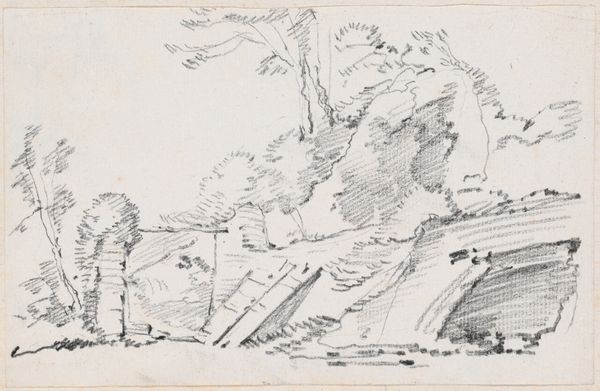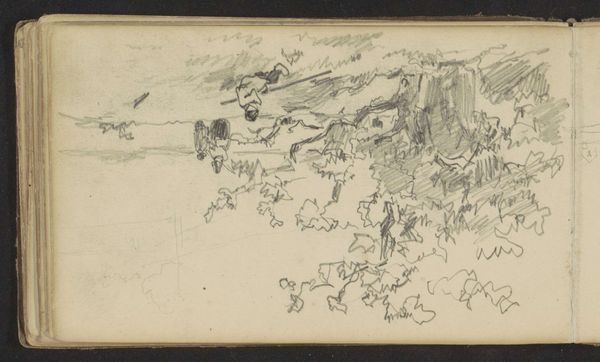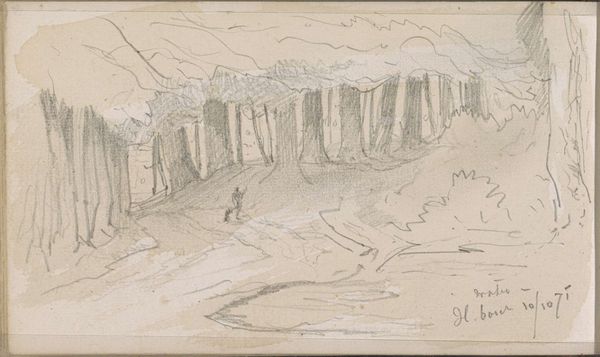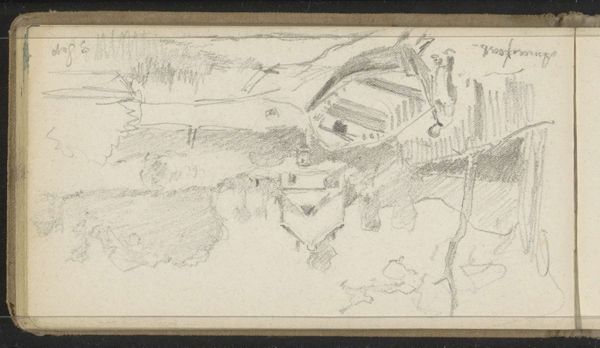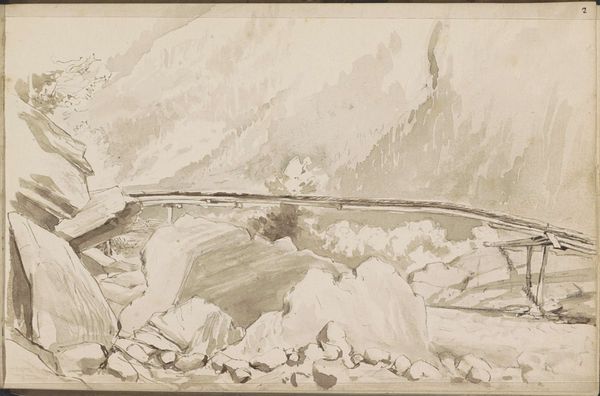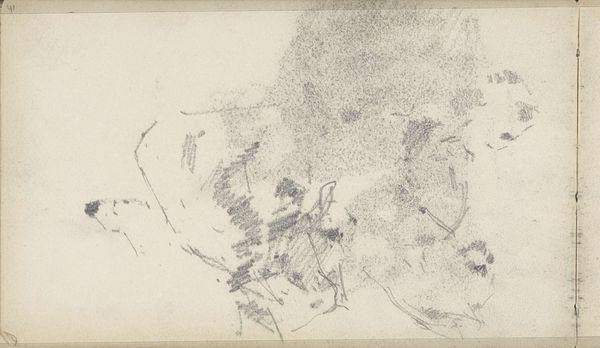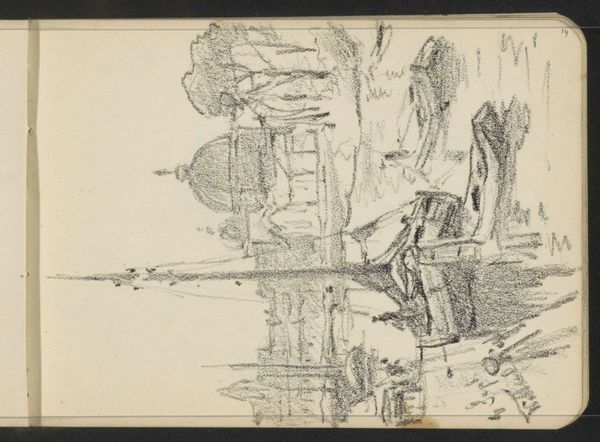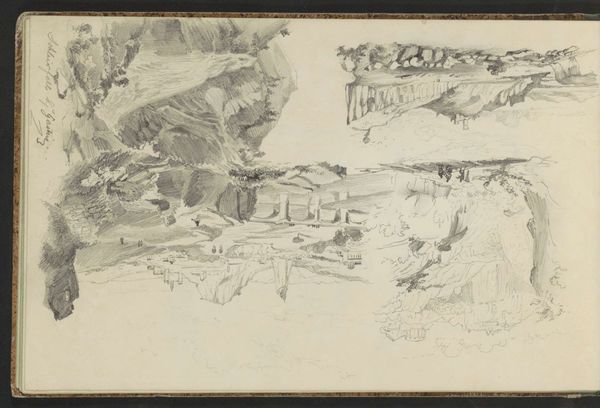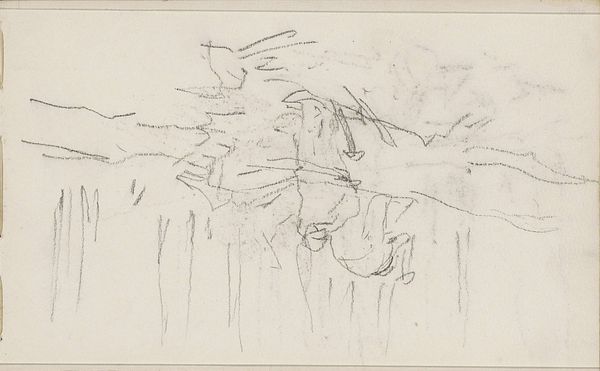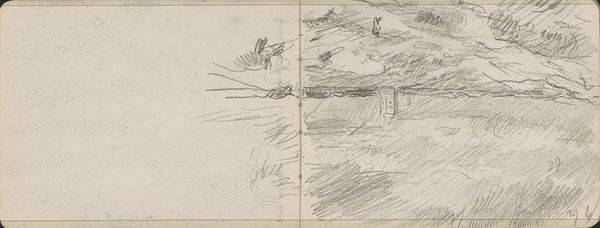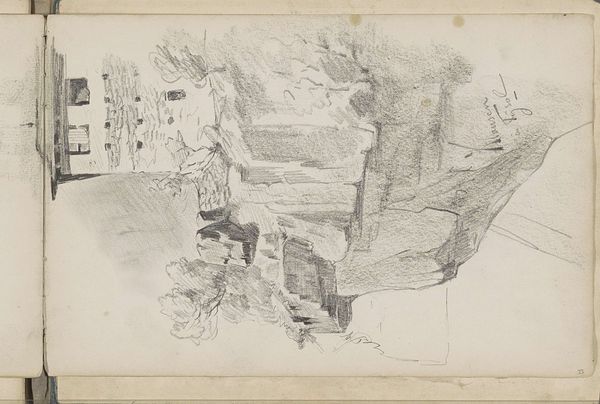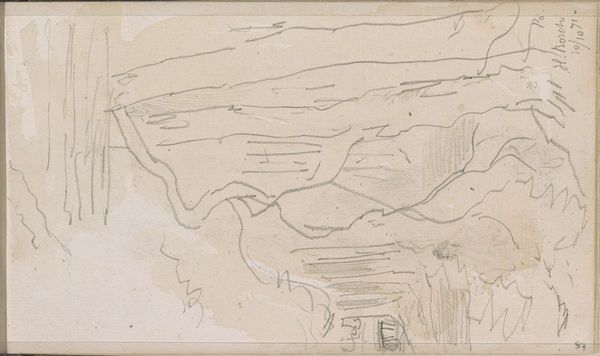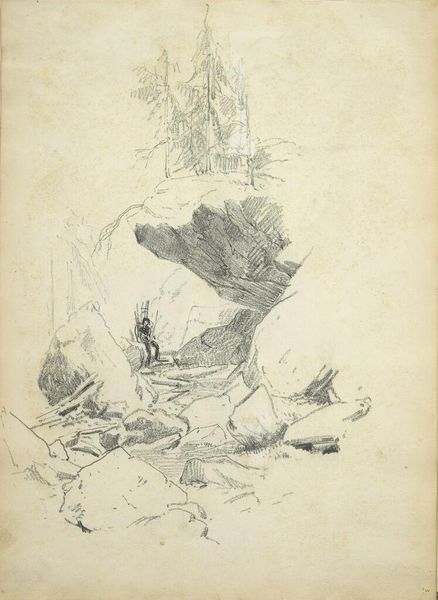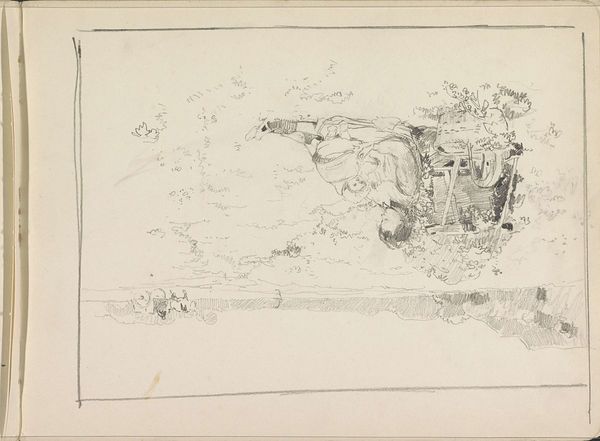
drawing, pencil
#
drawing
#
pencil sketch
#
landscape
#
romanticism
#
pencil
#
watercolor
Copyright: Rijks Museum: Open Domain
Curator: Johannes Tavenraat's drawing, "Man Looking Out Over a Valley," created between 1840 and 1847, is a fascinating piece. It's rendered in pencil, with touches of watercolor that enhance the atmosphere. What are your initial impressions? Editor: Stark and lonely. The limited palette makes the figure appear isolated, even vulnerable, against the implied vastness of the valley. Curator: Precisely. Note how Tavenraat uses a minimal range of tones—primarily shades of gray—to define form and space. The texture is created almost entirely through line work. The hatching technique conveys depth, guiding our eye across the valley to meet the horizon. Editor: It feels almost incomplete. Is this intentional, to signify the transient, almost ghostly existence of man compared to the ageless earth? I wonder about his historical context: the artist, Tavenraat, and his presumed position within the class structure that affords the opportunity to gaze and reflect... Curator: The unfinished quality aligns with Romantic ideals, though. There is this emphasis on the sublime and the unfinished masterpiece. Focus on how the composition uses the sharp angles of the rocks in the foreground to contrast against the soft gradient in the distance. It's about framing and contrast. Editor: And yet that stark simplicity renders this lone man all the more present. Tavenraat situates him in relation to an overwhelming landscape, sparking thoughts about land ownership, industrialization, and our planet's inherent worth beyond capitalism. It provokes profound questions about belonging and stewardship. Curator: Ultimately, it showcases the artistic power in exploring line and form. Tavenraat’s careful modulation gives depth and drama to this subtle piece. Editor: A great observation that inspires new pathways of interpretation. It makes me think more profoundly about how the socio-economic systems impacted his lens.
Comments
No comments
Be the first to comment and join the conversation on the ultimate creative platform.
